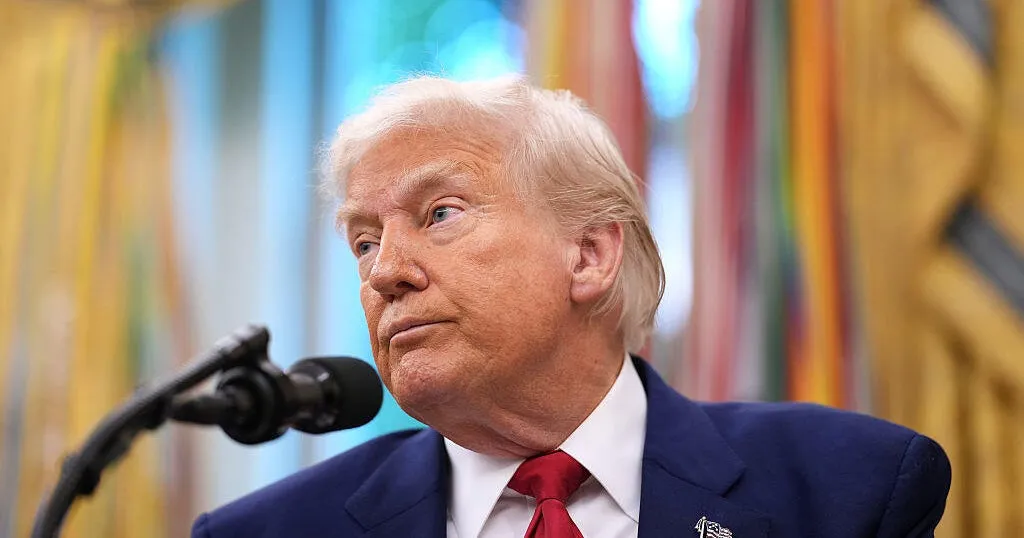Laura Doan is a fact checker for CBS News Confirmed. She covers misinformation, AI and social media.
This week, as President Trump and some of his prominent allies have promoted his sweeping budget bill, they have repeated a number of claims about the package that contradict expert analysis.
The so-called "one big, beautiful bill" narrowly passed the House last month and now faces major challenges in the Senate, including from holdouts like GOP Sen. Rand Paul of Kentucky, who opposes the bill in its current form. Elon Musk, the former head of the Department of Government Efficiency, has also publicly slammed the bill's price tag and tried to convince lawmakers to kill it.
In the face of this, the White House and House Speaker Mike Johnson have revived a number of their earlier talking points, claiming that their bill will reduce the nation's debt and bring substantial tax relief to American workers while not cutting Medicaid benefits to those who qualify.
Details:
Republicans have claimed the bill would reduce the deficit, with White House press secretary Karoline Leavitt suggesting it could save Americans nearly $1.6 trillion.
That's false, according to multiple non-partisan analysts and think tanks. While the bill includes cost-saving policies like new Medicaid work requirements and cuts to federal food assistance programs, analysts have found those savings are outweighed by expensive provisions -- like extending 2017 tax cuts, eliminating taxes on tips and boosting border security funding.
The Congressional Budget Office, Congress' official non-partisan budget scorers, estimated the bill's $1.2 trillion in spending cuts would be far exceeded by nearly $3.7 trillion in lost revenue, increasing the deficit by $2.4 trillion over the next decade. Independent analysts at Penn Wharton and the Tax Foundation estimated that even after accounting for economic growth the bill could create, it would still raise the deficit by $3.2 trillion or $1.7 trillion, respectively.
Asked to explain the discrepancy, a White House official said the CBO "isn't the most reliable source." Johnson's office has not responded.
Mr. Trump said May 31: "If Senator Rand Paul votes against our Great, Big, Beautiful Bill, he is voting for, along with the Radical Left Democrats, a 68% Tax Increase."
Details:
Mr.Trump has repeatedly claimed that senators will be raising people's taxes by 68% if they do not vote in favor of the reconciliation bill. However, multiple independent analyses show that claim is false.
The bill aims to extend tax cuts passed in 2017 that are set to expire. If those cuts lapse, the average household's after-tax income would fall by an estimated 2.1%, reflecting a roughly 7.5% tax increase, according to the non-partisan Urban-Brookings Tax Policy Center.
Similarly, the Tax Foundation, an independent think tank, estimated that if the tax cuts aren't extended and other provisions in the bill, such as exempting tips from taxes, don't pass, middle-income households would forgo a 4.5% increase in their after-tax income.
The White House did not respond to a request for clarification on the president's claim.
Alex Muresianu, a senior policy analyst at the Tax Foundation, said the president may have been referring to the share of taxpayers -- about 62% -- who would face a tax increase if the bill isn't passed. Other Republicans framed the statistic this way, including Kentucky Rep. Andy Barr who said opponents of the bill are voting for a "tax increase on 68% of Americans."
Mr. Trump said June 2: "There will be NO CUTS to Social Security, Medicare, or Medicaid. ... The only 'cutting' we will do is for Waste, Fraud, and Abuse, something that should have been done by the Incompetent, Radical Left Democrats for the last four years, but wasn't."
Johnson said June 2: "We're not cutting Medicaid. What we're doing is strengthening the program. We're reducing fraud, waste and abuse that is rampant in Medicaid to ensure that that program is essential for so many people."
Details:
Mr. Trump previously promised that his administration was not going to introduce cuts to Medicaid benefits and now claims the House-passed budget bill only targets "waste, fraud,and abuse" in the program. Johnson has echoed the claim.
However, that's not true, according to non-partisan analyses.
The Congressional Budget Office has estimated that the bill would cut over $600 billion from Medicaid in the next decade. Only a fraction of that would come from anti-fraud measures such as increased efforts to verify enrollees aren't enrolled in multiple states, according to Alice Burns, the associate director at the non-partisan KFF's Program on Medicaid and the Uninsured.
Roughly half of the savings would come from imposing new work requirements on recipients without young children or disabilities. Supporters say this encourages able-bodied enrollees to contribute to their communities. However, most Medicaid enrollees under 65 already have jobs, according to KFF. The change doesn't address waste,fraud or abuse in health care as defined by the Centers for Medicare and Medicaid Service.
The bill would also require states to charge copayments of up to $35 for some medical services for people with incomes above the poverty level -- a cost-saving move with little bearing on program integrity. In current law, states are allowed to charge out of pocket costs to low-income enrollees but they are typically minimal.
